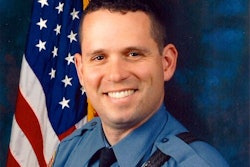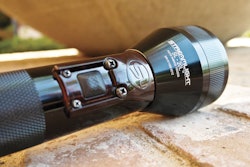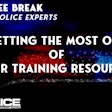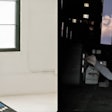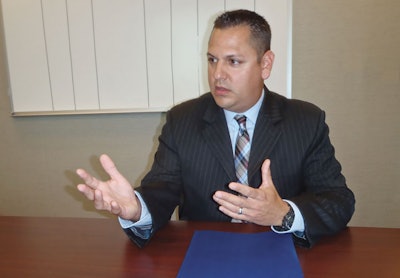 Photo courtesy of Amaury Murgado.
Photo courtesy of Amaury Murgado.
Agencies use oral boards to make decisions for a number of reasons. The most common are evaluating potential new hires, filling unit vacancies, and conducting promotional assessments. Over the last 25 years I have been on both sides; as candidate and board member. As a board member, I have been involved with every aspect of the process, including helping to write questions when filling an opening in one of my units. Although learning how to do well as a candidate does not involve quantum physics, there is a degree of skill involved that can be learned.
I am always dumbfounded by the way some candidates handle themselves during their interviews and by their answers' lack of quality. The idea here is to be prepared. You need to demonstrate examples of good decision-making, confirm your level of expertise, and present a positive image for yourself and the agency you represent. Instead, I'm left shaking my head in amazement at those who do just the opposite. No matter what the reason for the oral board, there are several accepted practices that when applied will make things go smoother for everyone involved.
Doing your Homework
Preparation is the key to a successful oral board interview. You need to learn as much as possible about the position you are applying for and its parent unit. You need to read every policy and procedure that applies to that position. You need to learn the unit’s mission, history, and any contemporary issues it faces.
Speak with unit members and ask them about their respective duties, assignments, and past experiences. Meet with the sergeant or supervisor and ask what he or she expects from members of his or her command. And finally, if your agency allows it, schedule a job shadow. This is where you follow a member of the unit around to see firsthand what he or she does. These suggestions speak to your interest and sincerity about getting the assignment. It will also help you answer the perfunctory question, "What have you done to prepare for this position?"
You should also be prepared to answer questions concerning current events, community issues, agency improvement, and decision-making scenario questions. You need to be prepared for common core questions like:
Please tell us about yourself.
- Why did you apply for this position?
- Why should we pick you over anyone else?
- What are your strengths and weaknesses?
- Where do you see yourself in five years?
A good place to get help is to seek out more experienced officers and pick their brains about their oral board experiences. More importantly, try to find yourself a mentor who will work with you. And lastly, get in front of a mirror and rehearse your answers.
Appearance
You would think that presenting an appropriate appearance would be the easiest of all considerations to master. And yet, there are always those who just didn't get the memo. If you're the kind of person who prefers wearing shorts, a tank top, and flip-flops, save it for your off time. For an oral board, it comes down to two choices: a suit and tie (or pantsuit for the ladies) or your full dress uniform.
When you wear a suit, make sure all components are clean and pressed. What's the point of wearing a wrinkled mess? Please make sure everything matches. Although I am by no means part of the fashion police, this is not the time to strut your individuality. Stick with classic and proven business combinations. And by all means, wear your power tie. Just don't wear your favorite NASCAR or Mickey Mouse print tie. As for the ladies, you have your own version of business dress, but I would stick to classic combinations as well.
We do a mock oral board at my agency's police academy to give the recruits insight into the hiring process. Many don’t own a business suit or can't afford one. We suggest that they go to yard sales, hit the thrift stores, or visit places like the Salvation Army. Don't laugh; sometimes you can pick up a full outfit for 20 bucks. I bought a complete tuxedo for Halloween one year for $25 (I was dressing as Lurch from the TV show "The Addams Family"). The point is, where there is a will there is a way.
The other option is wearing your dress uniform. But this is more involved to get right, so it gets people in trouble all the time. You need to follow your agency's policy about rank, awards, and insignia. Dry clean and press your uniform as well. It's a dress uniform and not an "I slept in it and don't give a crap" uniform. If you have a dress hat, bring it in with you and when you enter, hold it in your non-handshaking hand. Whether you wear it or not, that puts you in a complete uniform.
Sometimes candidates' qualifications are so close that it comes down to the smallest of details and who presented the more positive image when making the final decision. And do I really have to remind you to polish your boots/shoes?
As for your insignia, put a piece of cardboard or thin plastic behind your pins. This way when you place your clutches on, all of your insignia will be flat against your uniform. I hate seeing floppy insignia; it makes an otherwise sharp candidate look like he or she doesn't care.
I have worn both uniforms and suits in the past, but these days I lean more toward wearing a suit. The suit puts you in an even playing field. If you don't have a bunch of awards, bells, and whistles, then I would go for the suit. It also makes sense to wear a suit if business dress is part of the position you are applying for. It gives the board insight into what kind of image you will project if they pick you.
My last piece of advice about appearance comes from my wife. When she sees someone that's dressed badly, she always says the same thing: "Look, babe; someone doesn't love them. They let them go out of the house looking like that." Find some love from family and friends before you leave. It can make a big difference.
First Impressions
When you are called in, greet each of the board members with a handshake, and add a short greeting like "nice to meet you," or "good morning/afternoon." Do not sit down until instructed to do so.
If you have prepared some type of résumé packet for the board, don't assume they want to see it and start passing it out. Ask the board first. There are times when you are a known quantity or they have already riffled through your application packet/personnel file and don't need to see it. I would have something prepared just in case, however. It's better to have it and not need it.
If you are wearing a suit, undo your jacket button(s) as you sit down. That way you won't look like a stuffed mushroom while answering questions. Sit leaning slightly forward and smile. Make it look like you are ready because showing confidence is huge.
Answering Questions
As you are being asked questions, look at the person asking you the question. Then when you answer, look at all the board members as you do. Make sure you make eye contact with each and every board member. It's similar to testifying in court. You address your answers to the jury and not the attorney asking the question.
If you have a momentary memory lapse, don't try to B.S. your way through the answer. Board members will be experienced enough to always see through it, and this won't bode well for you during deliberations. Instead, just explain you can't remember at that moment but know where to find the answer.
If appropriate, add that you would never make a mistake that would hurt the agency but instead, when not sure, you would try to look up the answer through your available resources (policy manual, field guide, statute book, Internet, etc.), ask a senior officer, or confirm with a supervisor first. Although you might not get the full points for your answer, you will get something because board members will take note that you would ask first before making a mistake.
Being yourself is extremely important in this process. If you try to be something you’re not, the board will catch it. Let some of your personality shine through.
There will come a time toward the end when you will have one last opportunity to impact the board. You will be asked, "Do you have any questions for the board?" or "Is there anything else you'd like to add?" At that point, you need to take up to two minutes for one last appeal of your merits.
Tell them why you want the position, what your goals are, and emphasize points about yourself that will make you stand out compared to the others. When you are done (remember, take no more than two minutes), stand up (button up your jacket), shake each of the board member’s hands, and thank them for their time. Leave as confidently as you walked in.
Whatever It Takes
Dealing with oral boards is a fact of life. Learning how to deal with them early will save you a lot of headaches in the future.
One of your main objectives is finding a way to distinguish yourself from the other candidates. Like everything else in law enforcement, preparation is the key to your success. If you really want the position, then you will do whatever it takes to get it. Don't waste their time if you don't want it because all you'll do is leave a bad taste in their mouths for the next time.
Amaury Murgado is a special operations lieutenant with the Osceola County (Fla.) Sheriff’s Office.






